Past Events
Interested in Cotsen events? Sign up for our mailing list.Andean Working Group is pleased to announce Dr. Vladimir Gil Ramón's talk titled "Andean Environmental Conflicts, Risks, Disaster, and Development in the Anthropocene." Dr. Gil Ramón is a faculty member in the Department of Social Sciences and Environmental Development Master's Program at PUCP (Pontificia Universidad Católica del Perú). His research explores relationships between mining industries, the nation-state, and environmental risk, with publications including the 2020 book Fighting for Andean Resources. This AWG talk is an event rescheduled from its original Spring 2024 date.
If you would like to attend this event, please register at the following link: https://tinyurl.com/yc85rb6w
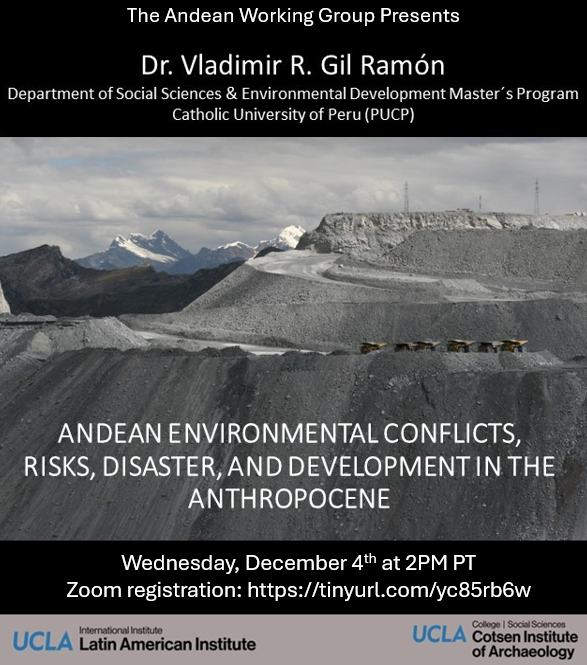
Contact Gabriel Silva Collins
Email gsilvacollins@g.ucla.edu
Phone
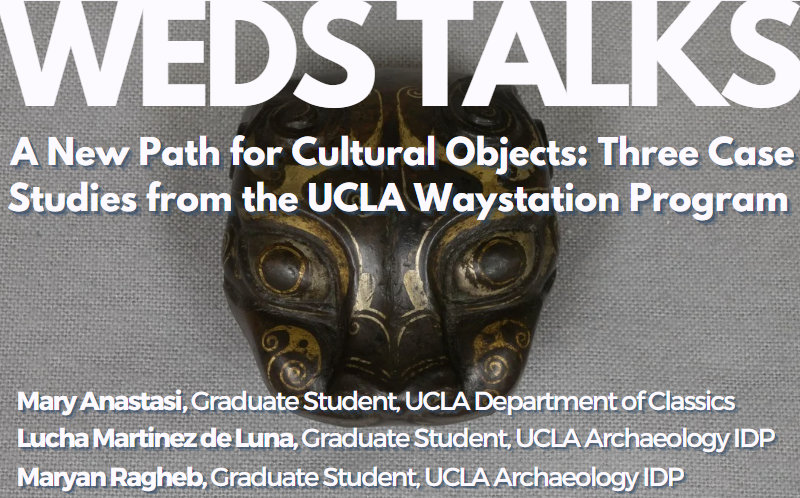
ABSTRACT: In 2023, the Cotsen Institute of Archaeology debuted its new graduate certificate in Cultural Heritage Research, Stewardship, and Restitution as part of the Waystation Initiative, which organizes and facilitates ethical returns of international archaeological and ethnological objects to the nation or community of origin. In this presentation, Lucha Martinez de Luna, Maryan Ragheb, and Mary Anastasi share the results from their first year working with Waystation. By combining provenance and art historical research with material analysis, they were able to compile object histories for various cultural objects from ancient China to reconstruct the life history of these objects. In the future, these and other cultural heritage artifacts will be returned to Shandong University in China, accompanied by provenance information obtained through our work with the Waystation. .
BIOS: Mary Anastasi is a PhD candidate in the Classics department at UCLA. Her research interests include philosophy, rhetoric, Imperial Greek literature, and epistolography, and she regularly teaches courses in Classics and Ancient Greek. Mary completed the Waystation certificate in the spring of 2024.
Lucha Martinez de Luna is an a PhD candidate in archaeology at the Cotsen Institute of Archaeology focused on Mesoamerican and Contemporary Archaeology. She has participated in archaeological projects in the Southwestern U.S., the American West, and central and southern Mexico and curator of archaeological and historical museum collections. As the La Providencia Archaeological Project director and a visiting professor at the University of Science and Arts in Chiapas, Mexico, Lucha also leads the Chicano/a/x Murals of Colorado Project.
Maryan Ragheb is a PhD candidate in archaeology at the Cotsen Institute of Archaeology who works in ancient Egypt. Her dissertation addresses people’s interactions with their material culture during social change in ancient Egypt, focusing on body ornamentation production and practices. Maryan worked on different archaeological projects in Egypt and Ethiopia. For the Waystation Certificate Program, she worked on jade neolithic objects from China.
Contact Sumiji Takahashi
Email sutakahashi@ioa.ucla.edu
Phone 310-825-4169
The Architecture Working Group presents Earthen Architecture and Heritage Conservation: Case Studies from Spain with Camilla Mileto and Fernando Vegas López-Manzanares, Getty Conservation Institute Fellows, Professors of Architecture and Historic Preservation at the Universitat Politéchnica de València (UPV).
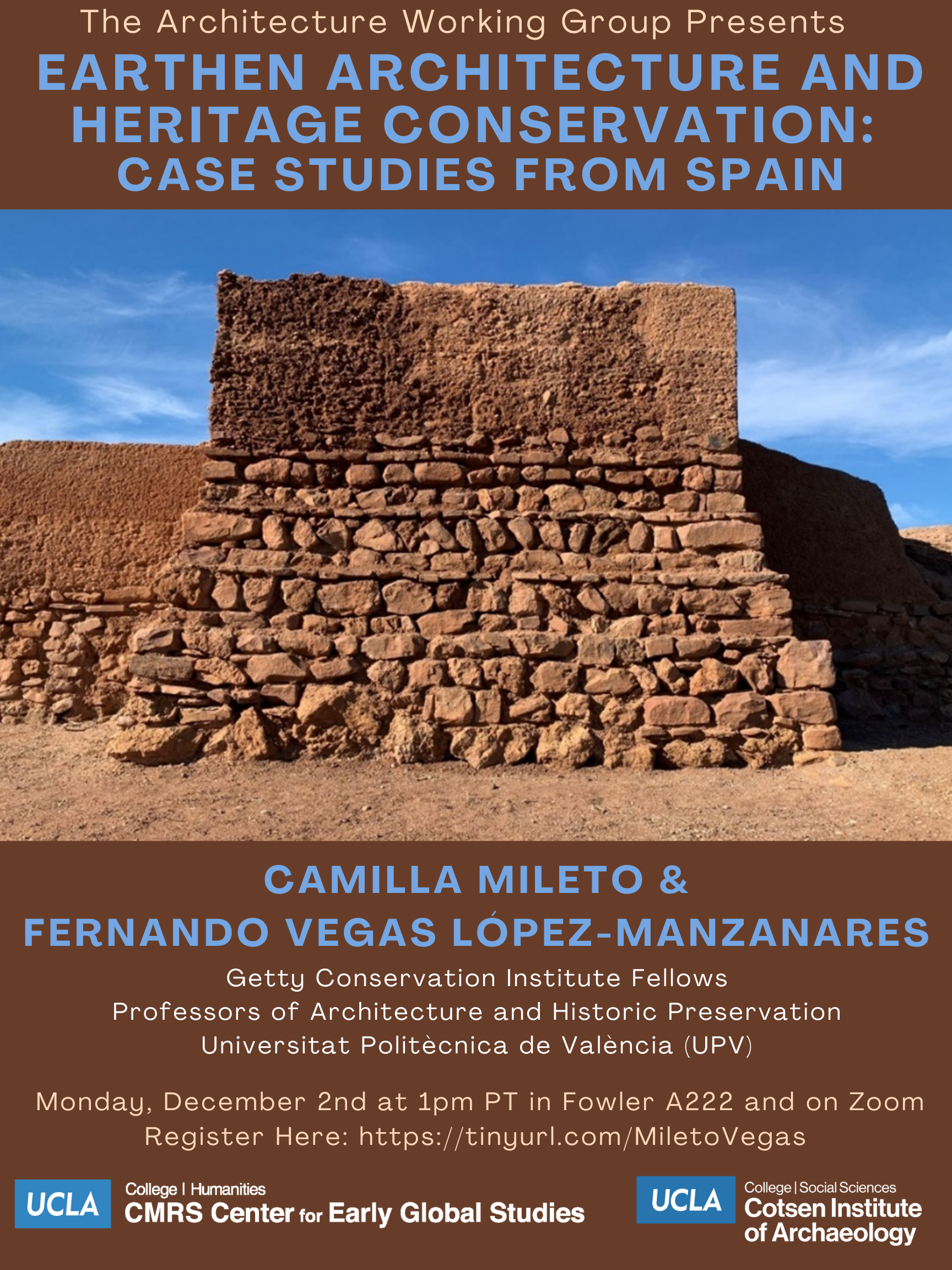
Contact Rachel Schloss
Email rachelschloss@g.ucla.edu
Phone
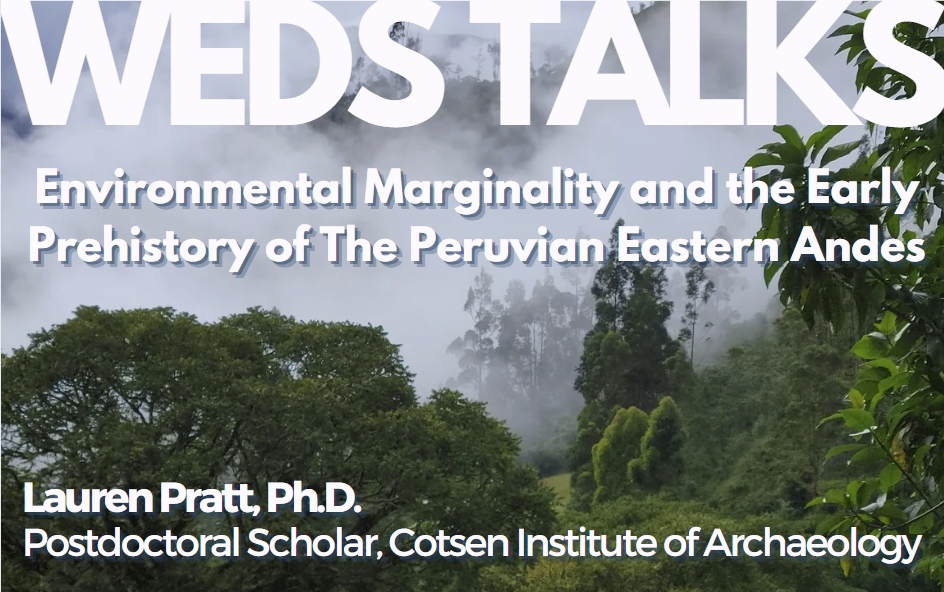
ABSTRACT: Archaeological models of human activity in the Peruvian eastern Andes prior to c. 1000 cal BP are enormously variable, ranging from near-total absence through selective or seasonal use to extensive local development and inter-regional exchange. Much of this disagreement is founded in competing evaluations of the environmental marginality of cloud forests and other eastern Andean environments for human occupation. As direct archaeological evidence of human activity from this place and time are scarce, evaluation of models has been difficult, relying largely on theory and indirect evidence from neighboring regions. In this talk, I present the results of the CARECH project, a multi-site archaeological survey and excavation initiative which offers insights into more than 4,000 years of human adaptation to, and modification of, eastern Andean environments, from Middle Holocene (c. 5,500 cal BP) foragers through the development of sedentary agriculturalism. Based on these results, the cloud forest appears to have been highly suitable for past human groups, who may also have modified the landscape to better suit their needs. In addition, I will discuss upcoming work in the cloud forests of southern Peru, designed to assess the role of the eastern Andes in facilitating highland-lowland interactions.
BIO: Lauren Pratt is a postdoctoral scholar at the Cotsen Institute of Archaeology. She received her doctoral degree from the University of Michigan in August 2024, with a dissertation titled "Human Ecology of the Early Prehistory of the Eastern Andes, Peru." She employs a variety of approaches, including human-behavioral ecology and niche construction, to understand human-environment interactions in the cloud forests and adjacent environmental settings at the intersection of South America's two defining landscapes: the Andes mountains and Amazon rainforest.
Contact Sumiji Takahashi
Email sutakahashi@ioa.ucla.edu
Phone 310-825-4169
 During WWII, over 125,000 people of Japanese ancestry were confined in camps across the United States. Three of these camps were built on Indigenous reservations—Gila River and Poston on the lands of the Gila River Indian Community and Colorado River Indian Community respectively, and the Old Leupp Citizen Isolation Center, a former boarding school on Navajo Nation land. In this talk I focus on the Gila River Incarceration Camp, where my family was incarcerated and where I have conducted archaeological research over the past 10 years. Gardens built by Japanese Americans at Gila River show the resilience and ingenuity of incarcerees as well as revealing imbricated layers of relationships with the landscape.
During WWII, over 125,000 people of Japanese ancestry were confined in camps across the United States. Three of these camps were built on Indigenous reservations—Gila River and Poston on the lands of the Gila River Indian Community and Colorado River Indian Community respectively, and the Old Leupp Citizen Isolation Center, a former boarding school on Navajo Nation land. In this talk I focus on the Gila River Incarceration Camp, where my family was incarcerated and where I have conducted archaeological research over the past 10 years. Gardens built by Japanese Americans at Gila River show the resilience and ingenuity of incarcerees as well as revealing imbricated layers of relationships with the landscape.
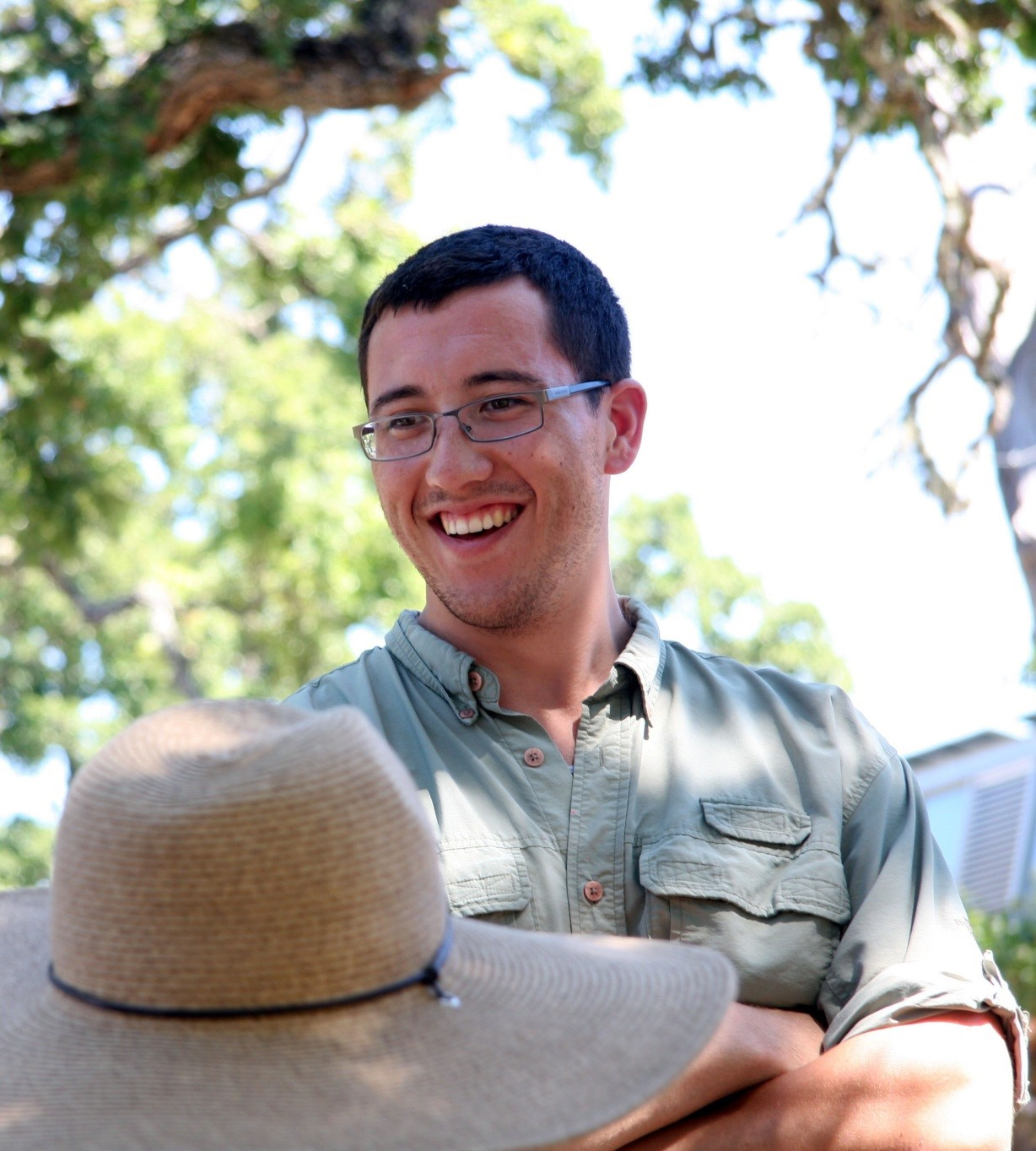 Koji Lau-Ozawa is a UCLA Chancellor’s Postdoctoral Fellow in the Institute of American Cultures. His research focuses on the archaeology of Japanese diaspora and their intersections with Indigenous lands as well as heritage practices around wartime memory. He received his PhD in Anthropology from Stanford University, MA from San Francisco State University, and undergraduate degree from the University of Edinburgh.
Koji Lau-Ozawa is a UCLA Chancellor’s Postdoctoral Fellow in the Institute of American Cultures. His research focuses on the archaeology of Japanese diaspora and their intersections with Indigenous lands as well as heritage practices around wartime memory. He received his PhD in Anthropology from Stanford University, MA from San Francisco State University, and undergraduate degree from the University of Edinburgh.
Contact Michelle Jacobson
Phone
The Cotsen Institute of Archaeology labs will be open to the public on November 14th, 2024 from 4:00pm to 6:00pm followed by a lecture by incoming faculty Dr. Koji Lau-Ozawa. His talk, titled Blossoms in the Desert: Japanese American Incarceration on Indigenous Lands, will take place in the Lenart Auditorium.
RSVP here or use the QR code below
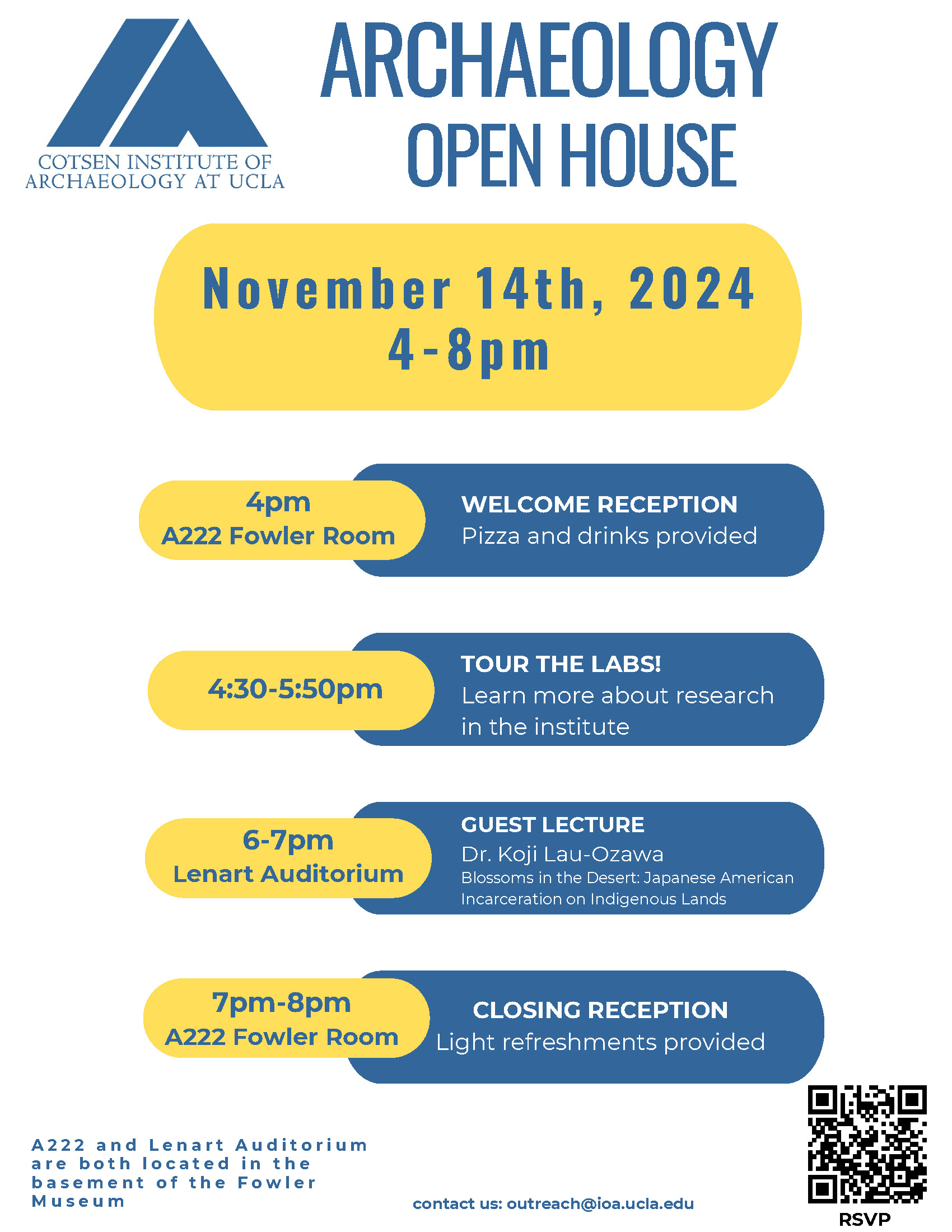
Contact Victoria Newhall
Phone
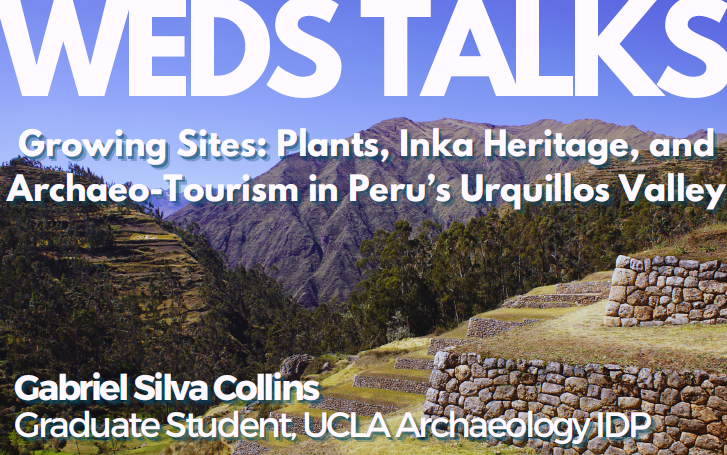
ABSTRACT: Southern Peru's Urquillos Valley hosts a series of Inka sites that exist in various states of integration with homes, farms, and the Peruvian tourist economy. Local Indigenous communities' ongoing use of these Inka sites frequently puts them at odds with the Peruvian government's Ministry of Culture, which often seeks to transform locally-managed "ruins" into state-run "archaeological sites." Examining three sites within the valley—Inkaq Mallquin, Apiypanki, and Choquekasantuy—reveals that different points in this transformative process can be linked to differences in plant communities living on those sites. Contemporary plants on heritage sites are both proxies for and drivers of archaeology-associated social, economic, and physical changes to the valley's Inka sites. In this talk, I study how botanical ecologies are employed by competing groups in struggles for control over land and heritage in the Urquillos Valley, and propose that a form of ecological imperialism is involved in creating proper archaeological sites as envisioned by Peru's Ministry of Culture.
BIO: Gabriel Silva Collins is a third-year PhD student at the Cotsen Institute of Archaeology. He received a BA in Anthropology from Williams College, and completed his MA in Archaeology at UCLA last spring. Gabriel's mixed archaeological and ethnographic research has focused on the relationships between precolonial Peruvian archaeological sites and the people who now live in, on, and around them. His dissertation work will continue these themes while examining a group of understudied sites near Cochabamba, Bolivia.
Contact Sumiji Takahashi
Email sutakahashi@ioa.ucla.edu
Phone 310-825-4169
On February 5, 2024, the Fowler returned a group of objects to His Majesty, Otumfuo Osei Tutu II, the 16th Asante King (Asantehene). On July 23, 2024, 20 historical treasures were returned to the Warumungu community in Tennant Creek, in the northern Territory of Australia. Join Silvia Forni, the Shirley & Ralph Shapiro Director of the Fowler Museum, and Erica P. Jones, senior curator of African arts and manager of curatorial affairs, for a conversation about the processes that enabled these returns and what museums gain when they let go of certain objects.
6pm Lecture
7pm Reception
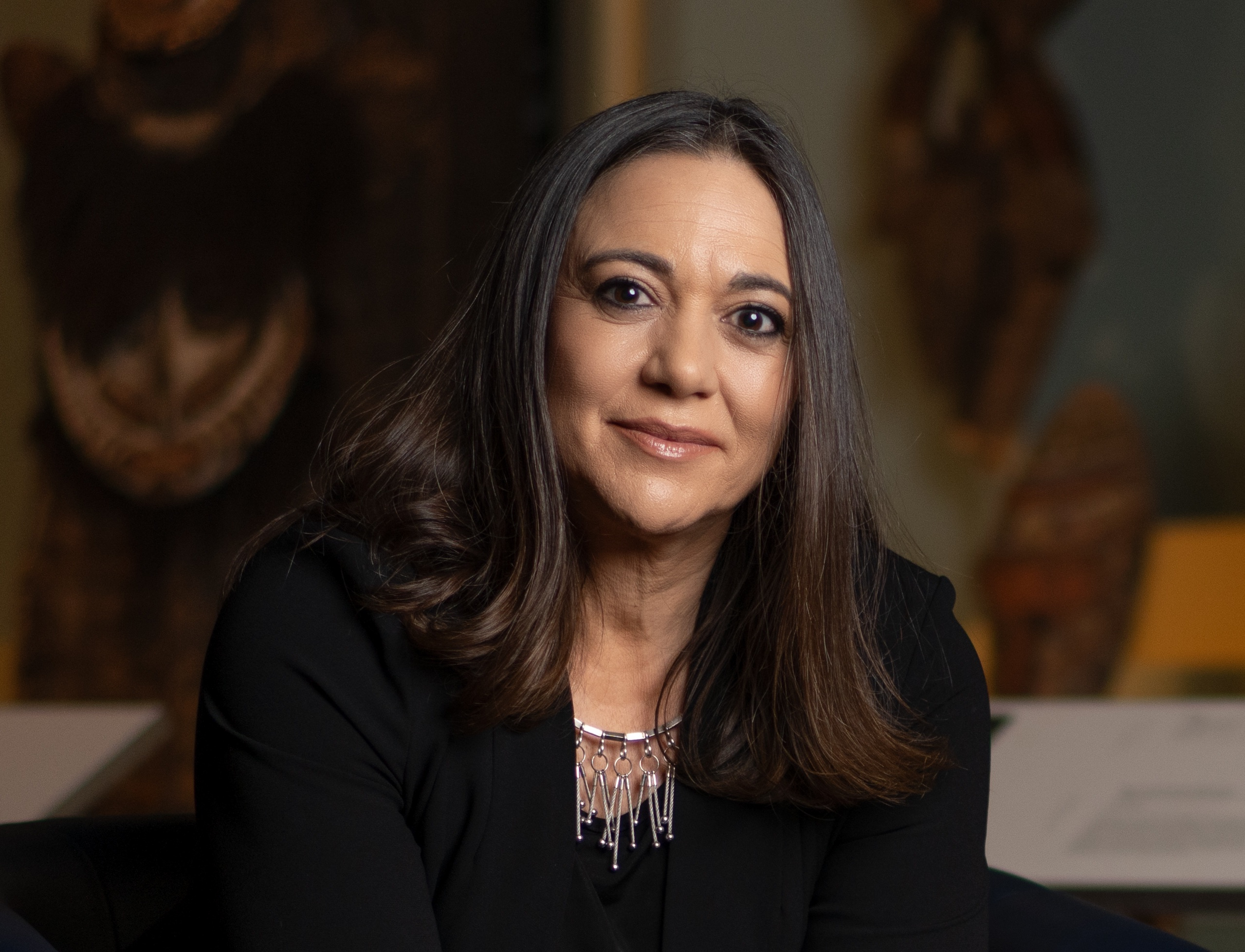 Dr. Silvia Forni joined the Fowler Museum as Shirley and Ralph Shapiro Director in December 2022. At the Fowler she is leading a team of dedicated scholars and museum professionals deeply invested in celebrating underrepresented artists and art histories and curating exhibitions and programs with and for the global communities of greater Los Angeles. Before moving to LA she served as Senior Curator of Global Africa and Deputy Vice President of the Department of Art & Culture at the Royal Ontario Museum in Toronto. She is also associated with the Department of Anthropology of the University of Toronto as Associate Professor. She is the author of numerous essays and book chapters. Among her recent publications is the volume Making History: Visual Art & Blackness in Canada, co-edited with Julie Crooks and Dominique Fontaine (2023), Art, Honor, and Ridicule: Fante Asafo Flags from Southern Ghana (2017), co-authored with Doran H. Ross (Awarded the R.L. Shep Ethnic Textile Book Award from the textile Society of America in 2018) and Africa in the Market. 20th Century art from the Amrad African Art Collection. (2015) edited with Christopher B. Steiner (Awarded the Arnold Rubin Outstanding Publication Award from the Art Council of the African Studies Association in 2017).
Dr. Silvia Forni joined the Fowler Museum as Shirley and Ralph Shapiro Director in December 2022. At the Fowler she is leading a team of dedicated scholars and museum professionals deeply invested in celebrating underrepresented artists and art histories and curating exhibitions and programs with and for the global communities of greater Los Angeles. Before moving to LA she served as Senior Curator of Global Africa and Deputy Vice President of the Department of Art & Culture at the Royal Ontario Museum in Toronto. She is also associated with the Department of Anthropology of the University of Toronto as Associate Professor. She is the author of numerous essays and book chapters. Among her recent publications is the volume Making History: Visual Art & Blackness in Canada, co-edited with Julie Crooks and Dominique Fontaine (2023), Art, Honor, and Ridicule: Fante Asafo Flags from Southern Ghana (2017), co-authored with Doran H. Ross (Awarded the R.L. Shep Ethnic Textile Book Award from the textile Society of America in 2018) and Africa in the Market. 20th Century art from the Amrad African Art Collection. (2015) edited with Christopher B. Steiner (Awarded the Arnold Rubin Outstanding Publication Award from the Art Council of the African Studies Association in 2017).
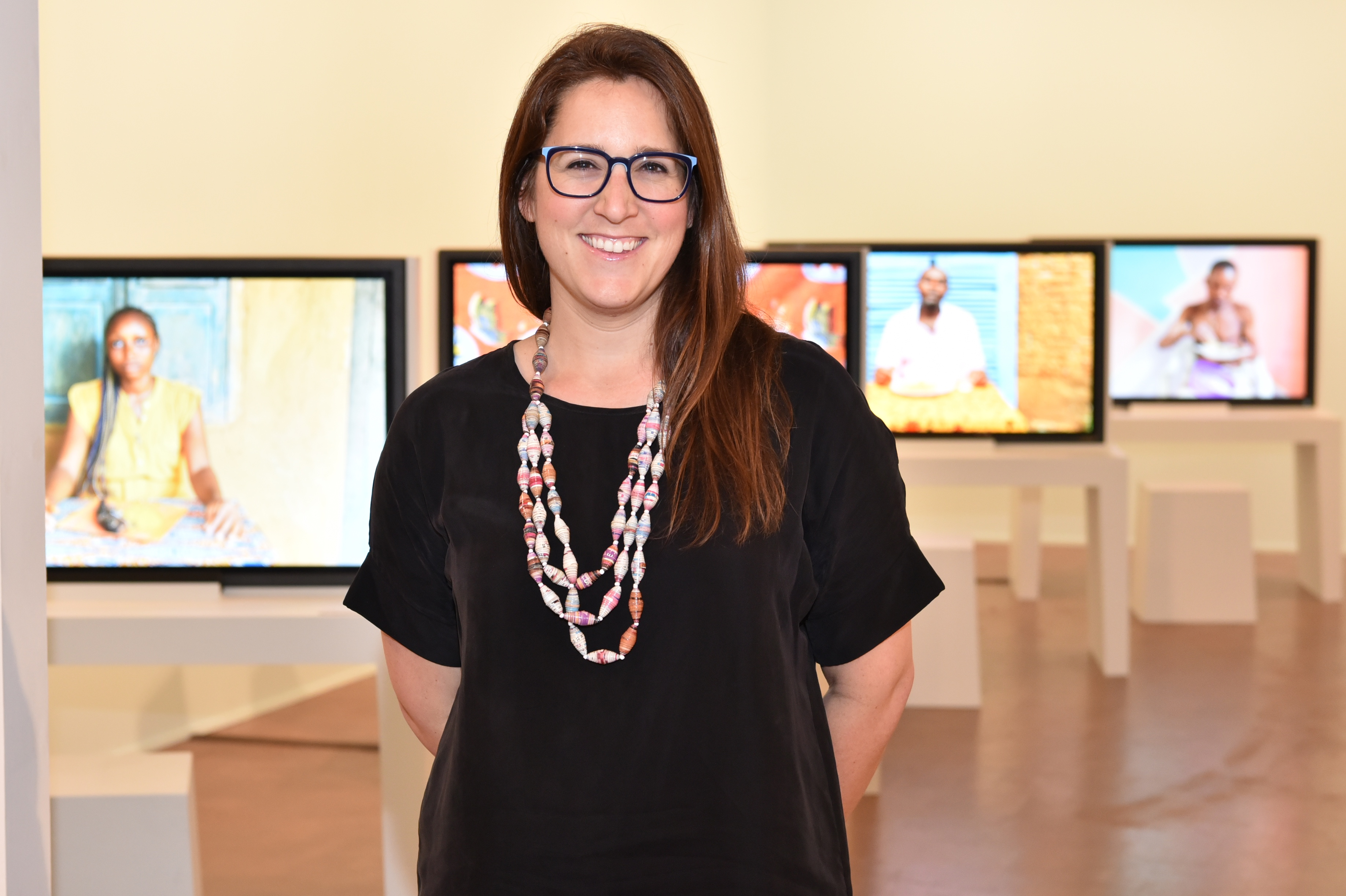 Dr. Erica P. Jones is the Senior Curator of African Arts and Manager of Curatorial Affairs at the Fowler Museum at UCLA. She received a Ph.D. in art history, with a focus in the arts of Africa, from the University of California, Los Angeles. Since joining the Fowler Museum in 2015, she has curated many exhibitions. A selection include The House Was Too Small: Yoruba Sacred Arts from Africa and Beyond (2023, co-curator), Gosette Lubondo: Imaginary Trip (2022, co-curator), Photo Cameroon: Studio Portraiture 1970-90s (2021, co-curator), Inheritance: Recent Video Art from Africa (2019), On Display in the Walled City: The Nigerian Pavilion at the British Empire Exhibition 1924-1925 (2019), and Meleko Mokgosi: Bread, Butter, and Power (2018). Jones is a key member in the Fowler’s Mellon grant funded initiative “Collaborative Interdisciplinary Research on African Collections at the Fowler Museum.” She is currently on the board of African Arts Journal, serves as a co-chair of the steering committee for the Collaboration, Collections, and Restitution Best Practices for North American Museums Holding African Objects Working Group, and in 2024 led the Fowler Museum’s repatriation of seven looted objects to the Asante Kingdom in Ghana. Her publishing has been concentrated on colonial-era collecting, provenance, and the arts and museums of the Cameroon Grassfields. She is the author of the book accompanying the exhibition Bread, Butter, and Power.
Dr. Erica P. Jones is the Senior Curator of African Arts and Manager of Curatorial Affairs at the Fowler Museum at UCLA. She received a Ph.D. in art history, with a focus in the arts of Africa, from the University of California, Los Angeles. Since joining the Fowler Museum in 2015, she has curated many exhibitions. A selection include The House Was Too Small: Yoruba Sacred Arts from Africa and Beyond (2023, co-curator), Gosette Lubondo: Imaginary Trip (2022, co-curator), Photo Cameroon: Studio Portraiture 1970-90s (2021, co-curator), Inheritance: Recent Video Art from Africa (2019), On Display in the Walled City: The Nigerian Pavilion at the British Empire Exhibition 1924-1925 (2019), and Meleko Mokgosi: Bread, Butter, and Power (2018). Jones is a key member in the Fowler’s Mellon grant funded initiative “Collaborative Interdisciplinary Research on African Collections at the Fowler Museum.” She is currently on the board of African Arts Journal, serves as a co-chair of the steering committee for the Collaboration, Collections, and Restitution Best Practices for North American Museums Holding African Objects Working Group, and in 2024 led the Fowler Museum’s repatriation of seven looted objects to the Asante Kingdom in Ghana. Her publishing has been concentrated on colonial-era collecting, provenance, and the arts and museums of the Cameroon Grassfields. She is the author of the book accompanying the exhibition Bread, Butter, and Power.
Contact Michelle Jacobson
Email mjacobson@ioa.ucla.edu
Phone
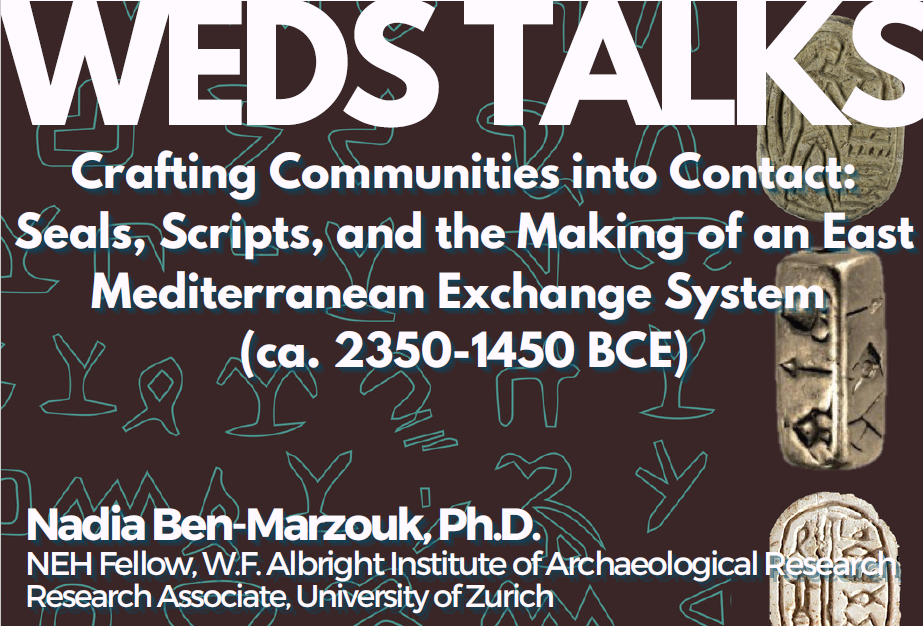
ABSTRACT: The late third to early second millennium BCE is characterized by the unprecedented movement of goods, people, and ideas alongside the development and spread of shared social practices and innovations in the east Mediterranean. It’s against this backdrop that we see the widespread appearance of emergent writing systems with (semi-)pictographic scripts and so-called “pseudo scripts”, many of which share similar graphemes and almost all of which appear on stamp seal amulets. Traditional scholarship has sought to understand the extent to which the Egyptian writing system impacted on local script formation, limiting stimuli to writing practices from one geographic region. This talk takes a craft-centered interregional approach, evaluating these scripts in relation to one another and proposing they evolved, in part, alongside a shared visual language reflecting a common repertoire of symbols and practices marking membership in a transregional community of exchange.
BIO: Nadia is currently an NEH Fellow at the W.F. Albright Institute of Archaeological Research and a research associate at the University of Zurich. She was a postdoctoral researcher on the Swiss National Science Foundation funded Sinergia project, “Stamp Seals from the Southern Levant” (2021–2023) after receiving her Ph.D. in Levantine Archaeology from the University of California, Los Angeles. Her research examines craft production in the Bronze Age eastern Mediterranean, with a focus on the identities and embodied knowledge of producers and the contexts in which innovations arose. Nadia has co-edited several volumes including Ancient Egyptian Society (2022, Routledge), two special issues of Near Eastern Archaeology (2023–2024), and two edited volumes on stamp seal production and typology (forthcoming, Peeters). She is currently working on a Cambridge University Press Element titled Social Identity in Ancient Egypt, as well as a book exploring the role of craftspeople in the making of an east Mediterranean exchange system.
Contact Sumiji Takahashi
Email sutakahashi@ioa.ucla.edu
Phone 310-825-4169
Archaeologies of Forced Migration:
Approaches, Case Studies, and Prospects
Cotsen Advanced Seminar, Cotsen Institute of Archaeology, UCLA
October 24–26, 2024
Organized by
Aaron A. Burke, Near Eastern Languages and Cultures
Li Min, Anthropology/East Asian Languages and Cultures
The symposium will be held over three days from the evening of Oct. 24th through Oct. 26th. Attendees are encouraged, though not required, to register for the event if they would attend any part of it, in order that we can maintain a record of attendees and communicate promptly in the event of any program changes. Please use the QR code or this link to do so.
The program has been made possible with generous support from UCLA’s Dean of Humanities, the Global Antiquity initiative, the Kershaw Chair of Ancient Eastern Mediterranean Studies, and the Department of Near Eastern Languages and Cultures.
![]() Cotsen Advanced Seminar - Forced Migration (2024-10).pdf
Cotsen Advanced Seminar - Forced Migration (2024-10).pdf
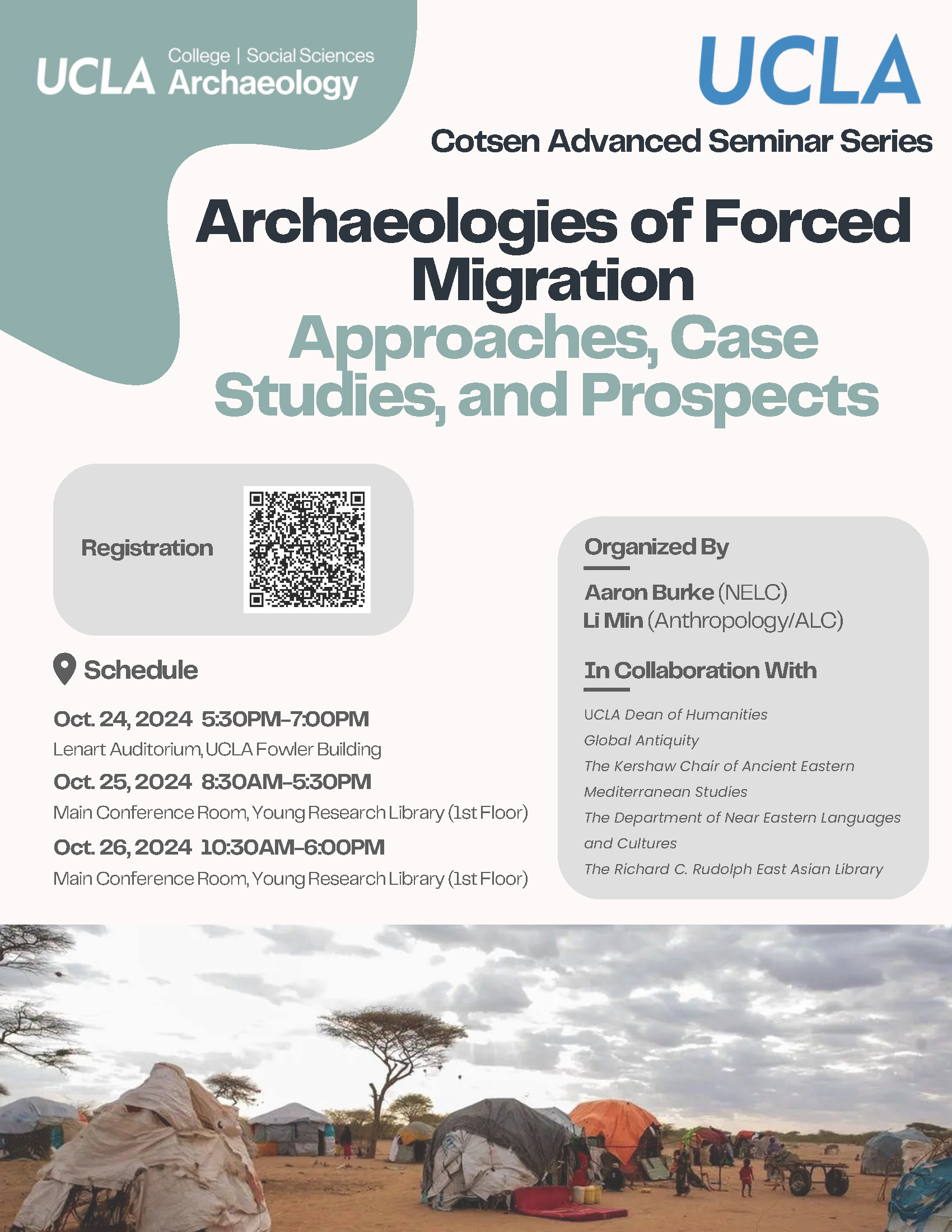
Contact
Phone
- ‹ previous
- 5 of 50
- next ›


